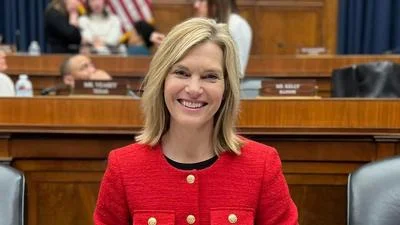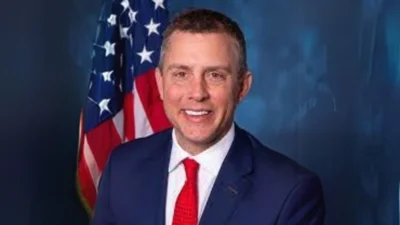Sen. John Hoeven, U.S. Senator from North Dakota | KX News
Sen. John Hoeven, U.S. Senator from North Dakota | KX News
John Hoeven, U.S. Senator from North Dakota, said that the Dakota Access Pipeline enhances energy security by transporting domestic oil to eastern markets and reducing reliance on foreign sources. This statement was made during an interview with KX News on April 7.
"This pipeline has all of the latest greatest technology features," said Hoeven. "Dakota Access Pipeline (DAPL) has been operating safely now for almost eight years, it moves 800,000 barrels a day of light sweet crude, the best in the world, from North Dakota to eastern markets that we would otherwise have to get from places like Opec and so forth. Energy security, it really is important for national security, and ultimately it brings down the price to consumers and to businesses and makes our economy more competitive."
According to DeSmog, the Dakota Access Pipeline (DAPL), developed by Energy Transfer Partners, is a 1,172-mile underground pipeline that transports oil from the Bakken shale in North Dakota to Patoka, Illinois. The $3.8 billion project traverses North Dakota, South Dakota, Iowa, and Illinois and was designed to move up to 570,000 barrels of crude oil per day. It became operational in June 2017 following approval from the U.S. Army Corps of Engineers.
The U.S. Energy Information Administration reported that North Dakota was the third-largest crude oil-producing state in 2023, contributing over 1.1 million barrels per day. Much of this production originates from the Bakken shale formation, which serves as the starting point for the Dakota Access Pipeline.
According to Central ND News, a North Dakota jury recently ordered Greenpeace to pay nearly $667 million to Energy Transfer in connection with protests against the Dakota Access Pipeline. The case followed protests in 2016 and 2017 that resulted in 761 arrests on charges ranging from trespassing to more serious offenses.
Hoeven has represented North Dakota in the U.S. Senate since 2011 after serving as the state’s governor from 2000 to 2010. He is a member of the Senate Energy and Natural Resources Committee and has been an advocate for expanding domestic energy infrastructure.






 Alerts Sign-up
Alerts Sign-up